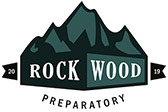
Children who struggle with sounding out words, reading, and understanding what they have read may have a learning disorder called dyslexia.
Research tells us that between five and 20% of the population are experiencing reading challenges. That’s why it is essential that we identify this learning disability early and understand that there isn’t a one-size-fits-all solution.
There are three main levels of dyslexia.
The three levels of dyslexia are:
- Mild dyslexia: Children with mild dyslexia may have difficulty recognizing or processing phonemes (the smallest units of sound in a language) and may struggle with decoding words. They may also have trouble with spelling and reading fluency. These children often benefit from targeted interventions and structured literacy instruction to help them improve their reading skills.
- Moderate dyslexia: Children with moderate dyslexia may have more severe difficulties with reading and language processing. They may struggle to recognize letter-sound correspondences, blend sounds together to read words, and comprehend what they read. These children may require more intensive interventions and support from specialized educators or reading specialists.
- Severe dyslexia: Children with severe dyslexia have significant challenges with reading and language processing. They may have trouble recognizing letters and words, spelling words correctly, and understanding written text. These children may benefit from individualized instruction and interventions that target their specific learning needs.
CURRENT DEFINITION AND SYMPTOMS OF DYSLEXIA
Dyslexia is a learning disability that hinders a person’s ability to read by affecting spelling, writing, and comprehension skills.
Dyslexia is not a learning disability that a child will outgrow, so it’s important to pursue a diagnosis and implement strategies to improve reading ability at a young age.
Anyone can be diagnosed with dyslexia. Often, individuals with dyslexia can be very creative and intelligent yet struggle with basic reading skills. https://rockwoodprep.com/decoding-dyslexia/
Dyslexia symptoms include:
- Difficulty learning new words
- Delayed speech development
- Difficulty with rhyming words
- Confusing letters for each other
- Reading below the expected level for age
- Grammar issues
- Problems spelling
- Poor sentence structure
- Lack of phonemic awareness
- Avoidance of reading aloud
- Difficulty copying words from a secondary source
In addition, there are subtle behavioral signs to watch for in children with dyslexia, including:
- Withdrawal from peers
- Depression
- Misbehavior or acting out
- Self-esteem issues
- Peer and sibling relationship difficulties
- Loss of interest in school
- Appearing unmotivated or lazy
Recognizing early symptoms of dyslexia can help diagnose the disability sooner, providing a more significant overall opportunity to improve. SOURCE: neurohealthah.com
SARAH’S STORY
Sarah, a 9-year-old girl, loved school in kindergarten, seemed to withdraw in first grade and seemed unmotivated to work on homework or reading assignments. By second grade it was clear that Sarah was struggling in school and falling behind her peers in reading.
After a comprehensive evaluation, Sarah was diagnosed with moderate dyslexia. With the support of a reading specialist, Sarah began receiving targeted interventions that focused on phonics, decoding skills, and reading comprehension.
Over the next six months, Sarah’s reading skills improved, and she became more confident in her ability to read and understand written text. This led to an improvement in her motivation to work on assignments at school and at home. Sarah will continue to receive intervention help and some ABA therapy for the rest of the school year.
WHAT RESEARCH TELLS US
Research has shown that dyslexia is a neurobiological disorder that affects the way the brain processes language and reading. Studies have also identified differences in brain function and structure in individuals with dyslexia compared to typical readers[1].
Understanding the three levels of mild, moderate, and severe dyslexia and providing appropriate interventions can help children like Sarah overcome their reading difficulties and reach their full potential.
At Rockwood Prep we know that it is essential for parents and teachers to be aware of the three levels of dyslexia and to provide targeted support and interventions for children who are struggling with reading and language processing.
By working together and implementing evidence-based practices, we can help children with dyslexia thrive academically and socially.
[1] https://www.ncbi.nlm.nih.gov/pmc/articles/PMC3499031/
